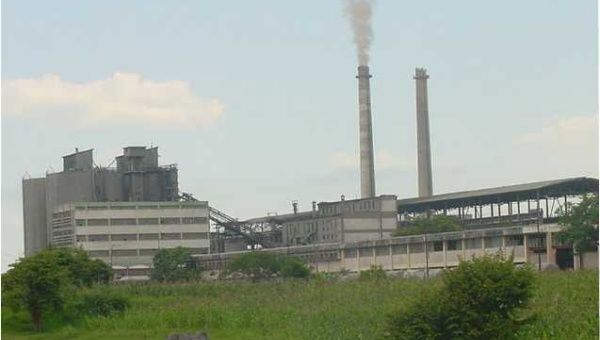Siguaney cement factory in Sancti Spiritus, Cuba will be transformed into the region's first incineration plant for substances harmful to the ozone layer (Photo: Escambray) | Photo: Escambray
Fulfilling commitments made as a signatory of the Montreal Protocol on ozone depleting substances (ODS), Cuba has entirely eradicated chlorofluorocarbons (CFC) in commercial and domestic refrigeration, as well as those used in the manufacture of medical and industrial aerosols, according to Nelson Espinosa Pena PhD, director of the country's Ozone Technical Office (OTOZ), during the opening of the CONTAT 2016 workshop, taking place at the Cuban Meteorology Society's headquarters. The event is sponsored by the Meteorology Institute's Center for Research on Pollution and Atmospheric Chemistry.
He described the country's efforts to progressively reduce ODS, which include the complete elimination of methyl bromide in the fumigation of warehouses and in the cultivation of tobacco, coffee, ornamental plants, tomato, and other crops; the removal of carbon tetrachloride from laboratories; and the replacement of halon-based fire extinguishers, except on airplanes.
This significant effort, Dr. Espinosa reported, required the modernization of industrial plants with the introduction of new ODS-free technology; the fabrication of new products with more environmentally friendly characteristics; training in best practices for refrigeration mechanics and technicians; and the development of alternative biological pest control methods in agriculture.
He explained that currently being implemented is an accelerated timetable for the elimination of hydrochlorofluorocarbons (HCFC) by 2030, noting that a 10% reduction in their use had been achieved as of 2015.
Natacha Figueredo Valdés MSc, OTOZ expert, noted that, this past year, Cuba began the destruction of ODS at a modern facility equipped with Japanese technology, located within the Siguaney cement plant in the province of Sancti Spíritus.
These efforts have allowed Cuba to join a small group of nations in the region with the capacity to address the complicated issue of ozone depleting substances.

No comments:
Post a Comment